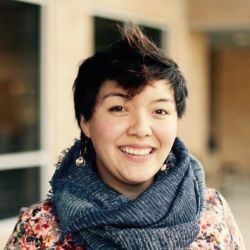Application deadline extended to Tuesday, December 10, 2024!
APPIC Number: 2180
Overview of Jefferson Center
Mission: To inspire hope, improve lives and strengthen our community by providing mental health and related solutions for individuals and families.
Vision: A community where mental health matters and care is accessible to all.
Jefferson Center is a private 501(c) (3) not-for-profit community mental health center serving Jefferson, Clear Creek and Gilpin counties for more than 60 years. Jefferson Center’s programs and services are designed to foster recovery and resilience for individuals of all ages who have mental health problems. As a private non-profit, Jefferson Center served more than 27,000 people in 2023. Our services are provided through numerous clinical locations in our three-county service area, in addition to schools, nursing homes, senior centers, and other partner locations throughout our community.
Jefferson Center recognizes that physical and mental health are linked. Research indicates that better integration of behavioral health and physical health care can have a positive impact on quality, costs and outcomes while also reducing health disparities. Since 1995, Jefferson Center has provided integrated health care to benefit clients through our successful partnerships with health care entities and organizations such as substance abuse providers, school-based health clinics, and community primary care practices. Our wellness prevention program offers individualized coaching and classes.
Jefferson Center’s clinical programs are grounded in the values of resiliency and recovery, and the entire organization strives toward being trauma-informed in view of the high prevalence of trauma among the populations we serve. Jefferson Center services are person-centered and promote hope through care that supports achievable positive outcomes.
At Jefferson Center, it is our policy and our mission to be inclusive and mindful of the diversity of everyone who comes through our doors. We are passionate about building a community where mental health matters and equitable care is accessible to all races, ethnicities, abilities, socioeconomic statuses, ages, sexual orientations, gender expressions, religions, cultures, and languages.
Outlined below are the principles which guide our commitment to developing a vibrant, sustainable, and resilient mental health care community.
We believe in the dignity of all people and creating a culture where diversity is valued.
We respect and affirm the unique identity of each member of our community.
We aim to inspire hope, improve lives, and strengthen our community by providing quality mental health and related solutions to everyone who comes through our doors.
We advocate at the local, state, and federal levels to promote equitable access to mental health care resources and improve the lives of community members.
We strive to dismantle systems and policies that create inequity, oppression, and disparity while promoting diversity, equity, and inclusion in all that we do.
We pursue an organizational mindset that values cultural humility, recognition, and accountability in order to improve our ability to offer individualized care.
We encourage all to share their cultural experiences and identities to enrich our community.
We are committed to placing diversity, equity, and inclusion practices at the center of our daily work to create a brighter future for everyone.
The Jefferson Center Psychology Doctoral Internship Program seeks to train interns to become clinical psychologists with a firm foundation in health services psychology. Our philosophy is three-fold: (1) that training in health services psychology is a continual developmental process, (2) that providing a broad range of training opportunities is optimum for the growth of developing clinical skills, and (3) that clinical health services psychology is a science-based discipline, and it is important to apply research to inform practice.
First, our philosophy emphasizes the continual professional development of our interns. Jefferson Center seeks to build on the skills developed during the doctoral education and practicum placements through systematic assessment and training. As interns progress through the internship rotations, they are given more and more complex cases in therapy and assessment. By the end of the internship year, interns should graduate as competent entry-level clinical psychologists who can function in a variety of settings and continue to develop professionally throughout their careers. Thus, our developmental approach ensures that training for practice in clinical psychology is sequential, cumulative, and graded in complexity.
Second, our philosophy provides a broad range of training opportunities for optimum development of clinical skills. Jefferson Center offers a broad range of training sites that cover the entire developmental spectrum. Through two major and four minor rotations, interns practice in a variety of settings that gives them a diverse set of clinical experiences and prepares them for work in a variety of professional positions.
Finally, our philosophy is that health services psychology must be a science-based discipline. We seek to further develop the appreciation of science as the foundation for the practice of clinical psychology throughout our training program. Research informs the practice of psychology at Jefferson Center from our use of the evidence-based Partnership in Change Outcome Management System, to our use of evidence based treatment practices (EBPs) throughout our programming, and ongoing research in our Innovation department. Our internship program exposes interns to ongoing use of research to inform treatment across all rotations and gives them experience in participating in research focused on the delivery of effective services.
Our internship program provides comprehensive training that is broad and general, developmental, and anchored in the practitioner-scientist model. Our training focuses on profession-wide competency areas derived through a multi-step process that is expected for entry-level practice. Ongoing evaluation of intern functioning in specific competency areas allows us to track progress and address areas that may require further training. Interns are evaluated on their demonstration of appropriate knowledge, skills, and attitudes in the key competency areas.
Intern training is enhanced by early identification of individual training needs and interests. During the first month of training, all interns complete a self-assessment that provides information to develop an individualized training plan to address not only individual differences in prior training, but also clinical interests and career goals. Various training approaches are utilized across settings, including direct supervision by experienced clinical supervisor psychologists, direct observation (either live or video/electronic) of the intern, participation in co-therapy, utilization of role-play and enactment, observational learning, formal didactic training, and promotion of reflective practice through self-reflection and self-evaluation to facilitate continuous improvement of professional performance.
By incorporating a mentoring model coupled with experiential training under close supervision, our program is designed to nurture interns toward success. Training is sequential, cumulative, and increasing in complexity over the course of the internship. Interns are expected to move toward professional independence as they progress through the training year. This ensures that interns will be able to demonstrate the levels of competency that are necessary for entry-level practice or post-doctoral training at the end of their training.
The program’s training model promotes appreciation and understanding of diversity by ensuring nondiscrimination in all training approaches, by addressing diversity as a focus of training, and by creating an environment that nurtures success for all interns.
The internship training year starts the beginning of August and concludes the end of July the following year (52 weeks, excluding Personal Annual Leave and holidays). Interns are expected to work 45 – 50 hours per week (approximately 25 – 50% of time is spent in face-to-face contact depending on the intern’s rotation). Interns must reach competency across goals and complete 2000 hours for successful completion of the internship program. The schedule below provides an approximation of the number of hours interns will spend each week in the following activities:
Major Clinical Rotations
Each intern will participate in one 16 – 24 hour/week Major Clinical Rotation each six-month period. Time for team meetings, group supervision, documentation and other paperwork is built into the rotation. The Internship Program will attempt to match the interns with their major rotation of choice during each six-month rotation. In the event of competing interests, the desired rotations can be alternated at the end of the first six-month period, allowing interns to be matched with their area/s of interest.
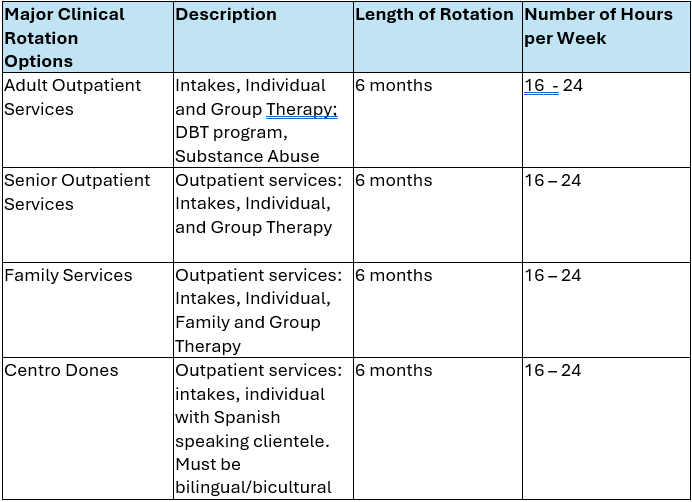
Minor Rotations
Each intern will participate in 3 minor rotations to provide experience in several key competencies of health services psychologists.
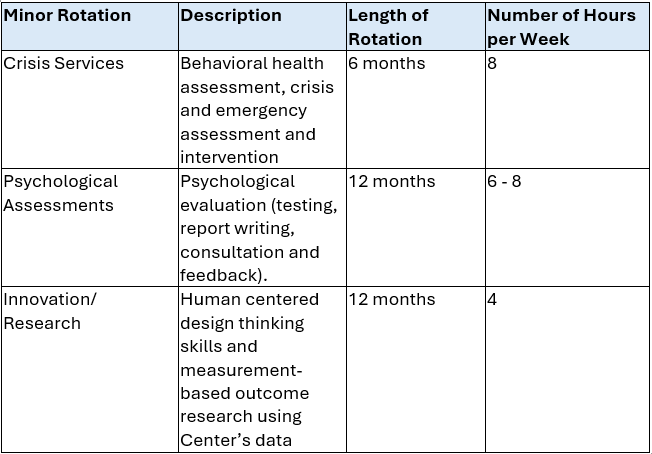
Each intern is required to complete three presentations during the training year: 1) the intern’s dissertation/research based doctoral paper, 2) formal case presentation, and 3) the intern’s research from research/innovation rotation. Agency staff is invited to attend these presentations.
Jefferson Center and its Psychology Doctoral Internship Program are committed to the recruitment of culturally and ethnically diverse interns. We encourage inquiries and applications from all qualified individuals.
Complete applications require the following documents:
- Completion of the APPIC Application for Psychology Internship (AAPI)
- A copy of one de-identified psychological assessment report
- Three (3) letters of recommendation
Completed applications are to be received no later than December 3, 2024. Applications are reviewed by members of the Training Committee. Our selection criteria are based on our practitioner-scientist model, and we look for applicants whose training goals match the training that we offer. The program looks not only at the total number of practicum hours but the quality of those hours in terms of the type of setting as well as experience with empirically supported treatments. If you have no Rorschach experience or limited Rorschach experience your application will still be considered as we look at your total assessment experience. All students who submitted a completed application will be notified of their interview status by December 18, 2024.
Based on the quality of the application and the match between the applicant’s training goals and the internship program, approximately thirty applicants are invited for an interview. Interviews are conducted in January and all interviews will be conducted remotely via zoom. Interviews are conducted with individual applicants by a panel of no less than three psychology internship supervisors in a group format. Standardized questions are asked and scored for all candidates interviewed.
Following the completion of the interviews, the Training Committee meets to rank order applicants, which is based on both the submitted application and the interview. The final ranking order is determined by consensus of the Training Committee. This internship site agrees to abide by the APPIC policy that no person at this training facility will solicit, accept, or use any ranking-related information from any intern applicant.
Following the results of the APPIC Match, a letter confirming the match with Jefferson Center’s Psychology Doctoral Internship will be sent to the incoming intern with a copy to the DCT of their program.
Results of the APPIC Match constitute a binding agreement between the matched applicants and the program. However, as stated in our listing in the APPIC directory, final appointment of applicants to the internship at Jefferson Center is contingent on applicants passing a criminal background check. A pre-employment background check is completed on all matched applicants. Felony assault convictions will be considered a failed background check. Federal misdemeanors and misdemeanors are handled on a case-by-case basis.
If not a US Citizen, you will be required to provide documentation to verify eligibility following match and before employment.
Jefferson Center for Mental Health is committed to a safe, healthy, and productive work environment for all employees free from the effects of substance abuse. Abuse of alcohol, drugs, and controlled substances impairs employee judgment, resulting in increased safety risks, injuries, and faulty decision-making. Jefferson Center for Mental Health follows Federal Law regarding cannabis and other drugs. We do not do a pre-employment drug test but all employees may be asked to submit a random urine drug screen should there be indications that substances may be affecting job performance.
Vaccine Requirement:
In partnership with Behavioral Health Entity (BHE), Jefferson Center is complying with a Colorado Department of Public Health and Environment (CDPHE) standard requiring facilities track and report flu vaccine immunization rates for staff and direct contractors and ensure that ninety percent (90%) have received the influenza vaccine during a given influenza season. All employees and new employees hired during the flu season (November 1 through March 31) shall provide Human Resources with proof of immunization, or a medical exemption within 30 days of hire. New employees who do not have proof of immunization are required to wear a surgical or procedure mask when in direct contact with clients and in common areas during influenza season.
COVID 19 vaccinations are no longer required.
Results of the APPIC Match constitute a binding agreement between the matched applicants and the program. However final appointment of applicants to the internship at Jefferson Center is contingent on applicants passing a criminal background check. A pre-employment background check is completed on all matched applicants. Felony assault convictions will be considered a failed background check. Federal misdemeanors and misdemeanors are handled on a case-by-case basis.
If not a US Citizen, you will be required to provide documentation to verify eligibility following match and before employment.
Jefferson Center for Mental Health is committed to a safe, healthy, and productive work environment for all employees free from the effects of substance abuse. Abuse of alcohol, drugs, and controlled substances impairs employee judgment, resulting in increased safety risks, injuries, and faulty decision-making. Jefferson Center for Mental Health follows Federal Law regarding cannabis and other drugs. We do not do a pre-employment drug test but all employees may be asked to submit a random urine drug screen should there be indications that substances may be affecting job performance. A positive drug screen including THC will result in a termination of the internship.
Vaccine Requirement
In partnership with Behavioral Health Entity (BHE), Jefferson Center is complying with a Colorado Department of Public Health and Environment (CDPHE) standard requiring facilities track and report flu vaccine immunization rates for staff and direct contractors and ensure that ninety percent (90%) have received the influenza vaccine during a given influenza season. All employees and new employees hired during the flu season (November 1 through March 31) shall provide Human Resources with proof of immunization, or a medical exemption within 30 days of hire. New employees who do not have proof of immunization are required to wear a surgical or procedure mask when in direct contact with clients and in common areas during influenza season.
COVID 19 vaccinations are no longer required.
Please feel free to contact Kirsten Kloock at KirstenK@jcmh.org with any questions about the Jefferson Center program.

Kirsten Kloock, PsyD
Kirsten Kloock, PsyD, is a licensed clinical psychologist and has been with Jefferson Center since 2016. In addition to being the Acting Psychology Doctoral Internship Training Director, she is the manager of the Psychological Assessment team. Kirsten received her doctorate from the California School of Professional Psychology with an emphasis in multicultural awareness and completed her postdoctoral residency specializing in psychological assessment. Kirsten also provides forensic, neuropsychological, ADHD, ASD, and social-emotional testing for our clients.
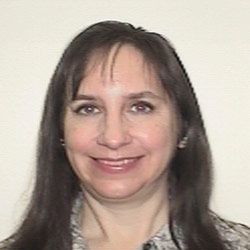
Amanda M. Daniel, MA, LPC
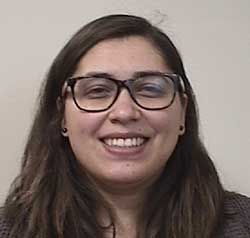
Abigail Donate-Peralta, PsyD
Abigail Donate-Peralta, PsyD is a licensed psychologist who has been with Jefferson Center since 2022. Abi graduated in 2019 from the University of Colorado Denver with a degree in School Psychology. She has worked in a public-school setting providing mental health, behavioral, crisis, consultation and assessment services to school aged-children and their families. Abi received a bilingual certificate through UC Denver and is biliterate/bilingual in English and Spanish. With JCMH, Abi provides a variety of clinical assessment services in English and Spanish. Abi supervises the Centro Dones rotation and Spanish language psychological assessments.
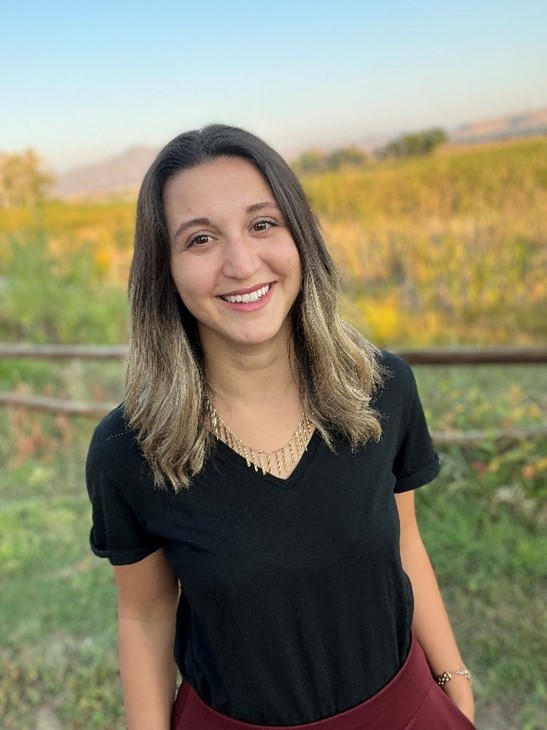
Esther Gbolie, PsyD
Esther Weiner, PsyD is a licensed clinical psychologist who has been at Jefferson Center for her internship and post-doctorate training. Esther provides clinical supervision of supervision for the interns. She received her doctorate from Loyola University Maryland and has a myriad of clinical interests ranging from therapy, supervision, and program development. Esther also approaches her roles from a multicultural framework, and has a specific research interests in white racial identity and antiracism.

Emily Grados, PsyD
Emily Grados, PsyD is a licensed clinical psychologist who works for Jefferson Center as manager of Crisis Services, overseeing operations of the 24/7 walk-in crisis center and mobile crisis response. Emily received her Doctorate from the Chicago School of Professional Psychology in Los Angeles, and completed her internship at Glendale Adventist Hospital. She specializes in trauma-informed community crisis intervention.

Jodi Lovejoy, DBH
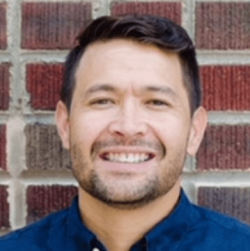
Adam Maher, PsyD

Priya McLennan, PhD
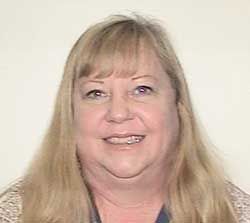
Lori Perkins, LPC
Lori Perkins, LPC is a Regis University graduate and a licensed professional counselor. She is a seasoned crisis clinician with over a decade of crisis experience and who has been with Jefferson Center for 26 years. Lori is the supervisor for the Crisis rotation.

Tiffany Shelton, PhD
Tiffany Shelton, PhD completed her postdoctoral assessment fellowship with Jefferson Center. Tiffany received her doctorate from the California School of Professional Psychology specializing in neuropsychology, and completed her postdoctoral residency at Sharp Healthcare in San Diego. Tiffany supervises the Psychological Assessment rotation for the internship. She also provides the yearlong Leadership Seminar for interns to develop their emerging leadership skills as an early career psychologist. In addition to her work as the Psychological Assessment Coordinator, Tiffany is the published author of 5 Minute Focus and Self-Compassion and Mindfulness.

Amelia Spiegel, BS
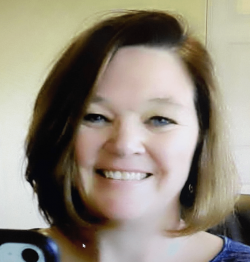
Sharon Stremel, PsyD

Brandon Ward, PsyD
Brandon Ward, PsyD is a licensed psychologist and the current Chief Innovation Office and VP of Information Systems at Jefferson Center. He has been with Jefferson Center since the beginning of 2020 and joined the doctoral internship training program shortly after. Dr. Ward interacts with interns on the Innovation/Research rotation and the Professional Development Seminar. In addition to his clinical work, Dr. Ward has led a focused career in the areas of technology and practice innovation.
